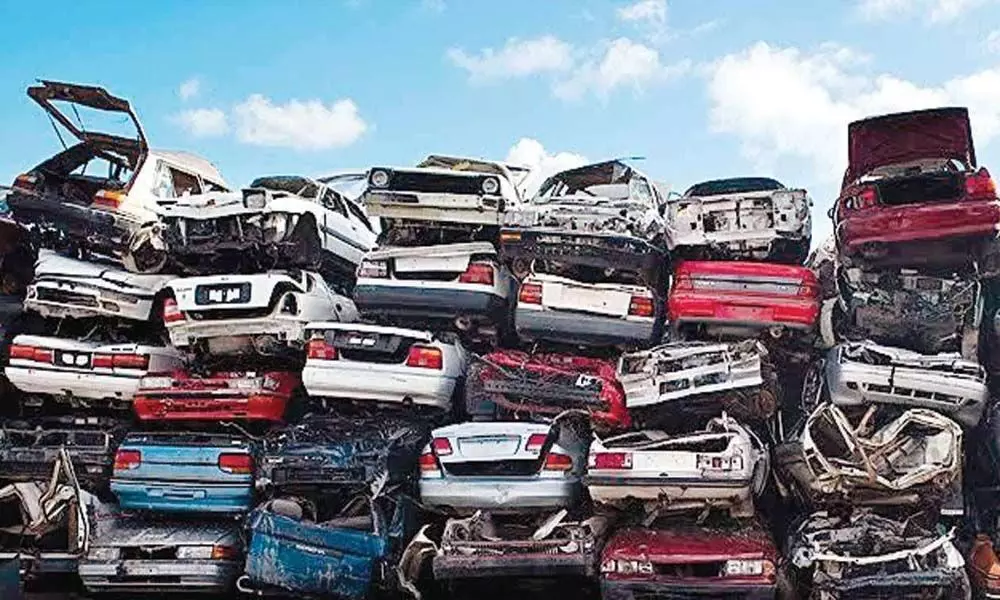Scrappage policy to boost for new biz models
India’s vehicle scrappage policy provides opportunities for new business models with traditional automotive ecosystems coming together with new players, such as small and medium enterprises to set up vehicle fitness testing centers, according to industry experts.
image for illustrative purpose

India's vehicle scrappage policy provides opportunities for new business models with traditional automotive ecosystems coming together with new players, such as small and medium enterprises to set up vehicle fitness testing centers, according to industry experts.
With the Covid-19 pandemic making the industry realise the vulnerability associated with the current value chain structure at both the consumer and the supplier end, the scrappage policy can give a positive push to start a new and nascent automotive ecosystem, said consultancy firm EY India.
Commenting on the policy which was launched by Prime Minister Narendra Modi last week, Deloitte India said it is also likely to attract additional investments and generate employment through registered vehicle scrapping facilities (RVSFs), with around 50-60 such centers likely to be set up across the country. "Automotive OEMs have an opportunity to revolutionise the recycling industry by evaluating interesting business models which would help them achieve both environmental and economic goals," EY India Partner and Automotive Sector Leader Vinay Raghunath said in a statement. They can potentially leverage the supply chain associated with recycled materials to reduce input material costs, impact vehicle prices positively, improve shareholder value and offer a choice to consumers, he added. According to EY India, original equipment manufacturers (OEMs) are responding to the new dimensions of mobility connected, autonomous, shared, and electric vehicles new forms of ownership and an increased environmental focus across stakeholders. "In addition, the Covid-19 pandemic has made the industry realise the vulnerability associated with the current value chain structure at both the consumer and the supplier end," it added.

